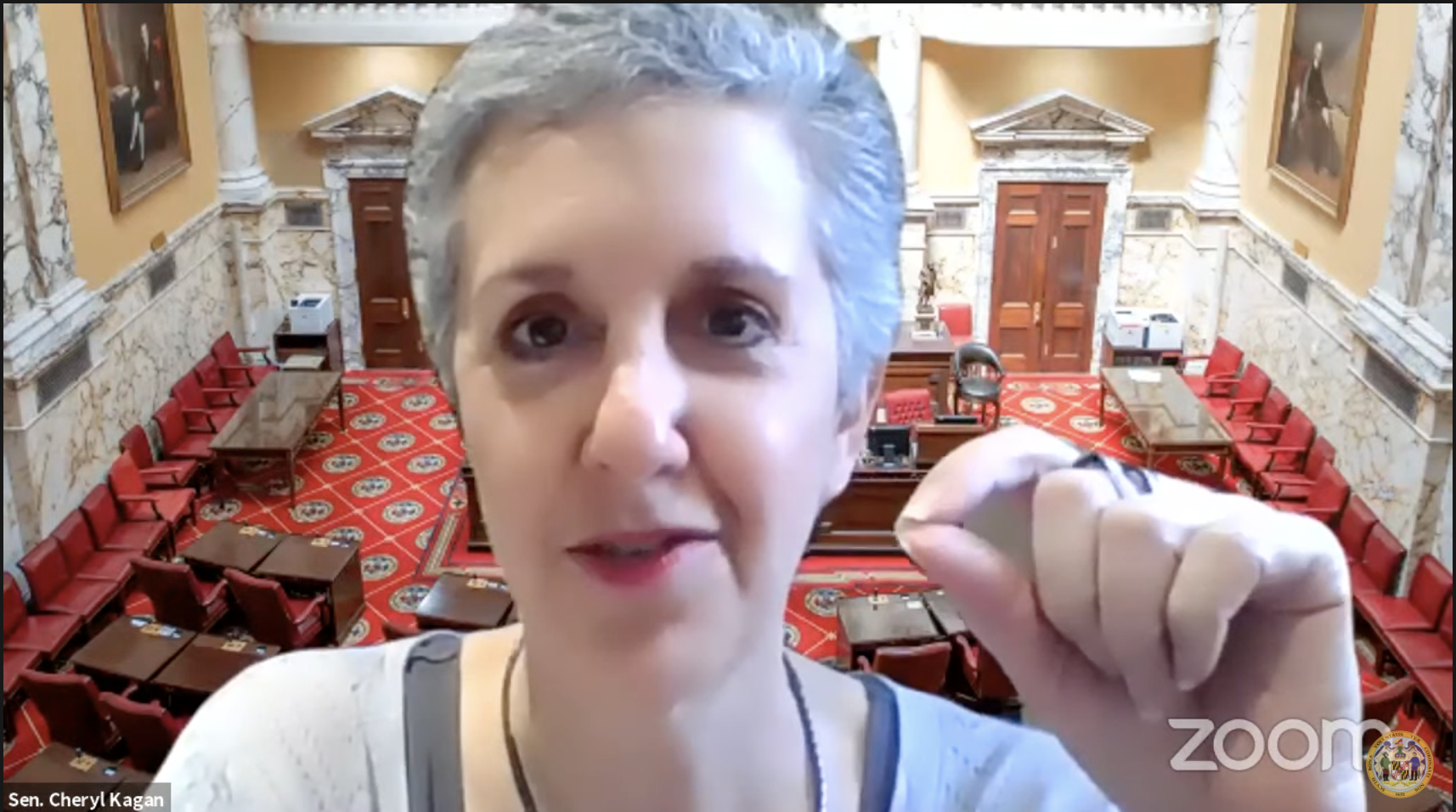A bill that would repeal Maryland’s state song “Maryland, My Maryland!” on the grounds it contains offensive and outdated language is advancing in the Legislature this week.
The song, penned in 1891, labels President Abraham Lincoln as a “despot,” poses a call to action to defend the state from the Union, and personifies the state as “not dead, nor deaf, nor dumb,” among other provocative lyrics.
“It’s way past time to eliminate this outdated and offensive tune from our law books,” Sen. Cheryl C. Kagan, D-Montgomery, SB08’s Senate sponsor, told Capital News Service.
Kagan says now is the proper time to repeal the song as Confederate-era imagery incorporated into state symbols is being removed nationwide; she believes the legislative repeal process can be quick, allowing for more time to be directed toward pressing issues such as COVID-19 recovery initiatives.
“Repealing the state song should be accomplished in five minutes so we can go back to the people’s business, really pressing business,” Kagan said.
During a Feb. 24 House hearing on the bill’s counterpart HB0667, Comptroller Peter Franchot, D, offered testimony in support of the bill.
“There was only one correct ‘side’ to be on during the Civil War, and I think it’s time our state song recognizes that,” Franchot said.
In testimony opposing the bill, John T. Barringer II of Eldersburg, Maryland, wrote that he worries about the precedent set by removing something so crucial to the state’s identity.
“This legislation is not in Maryland’s past, present, or future interests. It censors our state’s distinctive story, condemns the state song on the gallows of a national culture cleansing frenzy, and deprives future generations of learning some tough truth of a cataclysmic epoch in our federal and state history,” Barringer said.
A number of institutions have removed the state song from their repertoires in recent years.
The University of Maryland announced in 2017 its marching band the Mighty Sound of Maryland would abstain from playing the song on campus going forward; The Preakness Stakes followed suit in 2020 announcing they would no longer play the song during the annual race at Pimlico Race Course.
In 2017, days after violence erupted at a white supremacist protest against the removal of a Gen. Robert E. Lee monument in Charlottesville, Va., then-mayor Catherine Pugh arranged the removal of four Confederate monuments in Baltimore; in 2016, a seven-member panel formally suggested the removal of two of the statues.
Officials have attempted to repeal “Maryland, My Maryland” on multiple occasions; Kagan has sponsored the effort twice previously but believes this is the year it will be successful.
“I think George Floyd’s murder and the subsequent focus on equity and Black Lives Matter has shone a spotlight on Confederate-themed symbols…the attempt to repeal it, or repeal and replace it has been around for decades and I’m very hopeful that with new leadership in the House and new leadership in the Senate, as well as increased sensitivity to the issues this will be the year we finally get it done,” Kagan said.
Kagan has not suggested a replacement for the state song and says the issue can be addressed at a later date.
“In the future, if someone wants to propose a new state song, that’s a conversation for another time. But I think what we need to do this year is just kill it, take it out of our law books, and prepare to move forward without that stain on our state’s reputation,” Kagan said.
The House bill advanced on Thursday and is expected to come up for a final vote in that chamber soon.
If SB0008/HB0667 passes, the song would be removed on July 1.
Two other bills — HB0389 (cross-filed with SB0087) and HB0437 — that aim to repeal and replace the state song are also going through the state Legislature.
EDITORS: This story is updated from the original to correct a quote from Sen. Cheryl Kagan from “logbooks” in the 16th paragraph to “law books”, and corrects the final bill number in the final paragraph to HB0437.

